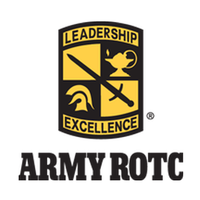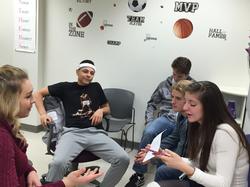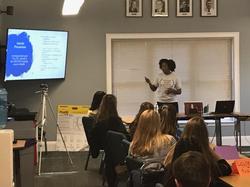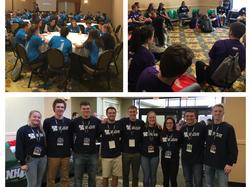Student Leadership
Arguably the most important part of the Life of an Athlete (LoA) program is the Student Leadership. Without the buy-in of the students in our schools, LoA would not be as successful as it is. The LoA Staff has collaborated with the NHIAA Staff and member schools to create a number of resources and opportunities for student-athletes to learn about leadership, and further develop their skills.
Life of an Athlete Trainings
LoA Staff members are eager to visit each and every NHIAA member school to meet with students and discuss ways to improve the culture in the hallways of the school. LoA is available to schools for trainings on a variety of topics for different audiences. LoA has presented to students and coaches on goal setting, team dynamics, mental health, decision making, mission and vision statements, vaping, just to name a few! LoA is not just for athletes- many schools have integrated parts of the program to connect to all students in the school (i.e. "Life of a Blue Devil" at Epping High School).
The Leadership Guide
The LoA and NHIAA staff collaborated to create the Life of an Athlete NH Leadership Guide. This guide is provided as a reference point to use when questions or conflicts arise. Being a leader is no easy task. Leaders are bound to come across adversity and problems that must be overcome on a regular basis. This guide will help leaders understand how to be a positive leader for the team and school. There is no one right way to be an effective, dynamic leader. By having an open mind, good communication skills, and the ability to self-assess, leaders will be well on their way to being successful.
NHIAA Student Leadership Committee presented by the NH Army National Guard
The NHIAA Student Leadership Committee is a group of students from across New Hampshire who gather on a monthly basis to discuss leadership topics. Students are able to learn from each other and help each other come up with solutions for the leadership issues faced in schools, with teammates, on and off the field.
For a Student Leadership Committee Application, CLICK HERE! Applications for the 2025-26 school year are due by August 8, 2025.
Diet and Nutrition Information
The LoA Power Back Diet was specifically designed for student-athletes and provides important nutritional guidance in a way that is easy to understand and implement. Proper nutrition improves athletic and non-athletic performance, while alcohol, tobacco, and other drugs impede performance in numerous ways.
An athlete's body requires much greater energy than those who are less active. Proper nutrition is especially important for student-athletes who are still growing. When an athlete is training, the body is in a constant state of repair. There is an ongoing process of maintaining and repairing muscle mass that is required to remain structurally capable to perform and compete.
Most athletes engaged in a high level of training should eat every four hours. This maintains blood sugar levels needed to fuel major body systems, like brain and muscles. If blood glucose levels reach critically low levels, nearly every measurable parameter of body and brain function rapidly declines. Maintaining constant blood sugar levels has the added advantage of improving overall health by reducing the amount of stress hormone released. Stress hormone should be avoided because it tears down muscle capacity.
Healthy snacks between meals improve performance by keeping your brain and muscles fueled. Nutritious choices include dried fruit, power bars, or a few sips of watered down Gatorade to help maintain blood sugar levels which is the key to being alert and physically responsive.
For more information about nutrition for athletes, read the Power Back Diet. Please understand that if you have special dietary needs, you need to consult a medical professional and adjust your diet accordingly.
You can also check out a number of healthy recipes on the LoA Pinterest page!
Sleep
The central nervous system is the single most important factor in optimal athletic performance. A good night's sleep is essential to maintaining the central nervous system. A prominent Stanford University study found that student-athletes perform better when they get an adequate amount of sleep. According to the study, basketball players ran faster and made more shots when they slept at least 10 hours per night. Brain scans show a dramatic increase in blood flow to the brain after eight hours of sleep in comparison to the brain that received no sleep.
After 8 to 10 hours of sleep, you have stored up roughly 14 hours of central nervous system readiness. The brain needs 1.5 to 2.5 hours of REM sleep each night to repair neuronal damage and reboot the brain's energy levels. Once an athlete has built up a sleep deficit, the body cannot function at optimal levels.
Athletes should be cognizant and use central nervous system reserves wisely. Even activities that you wouldn't think as draining, such as watching TV, searching the internet, playing video games, or playing on your phone, can deplete your reserves. Adequate sleep should be incorporated into a healthy lifestyle along with proper nutrition and exercise.
Life of an Athlete NH has developed a Sleep Manual for more information on the importance of sleep!











.png)












(1).jpg)









